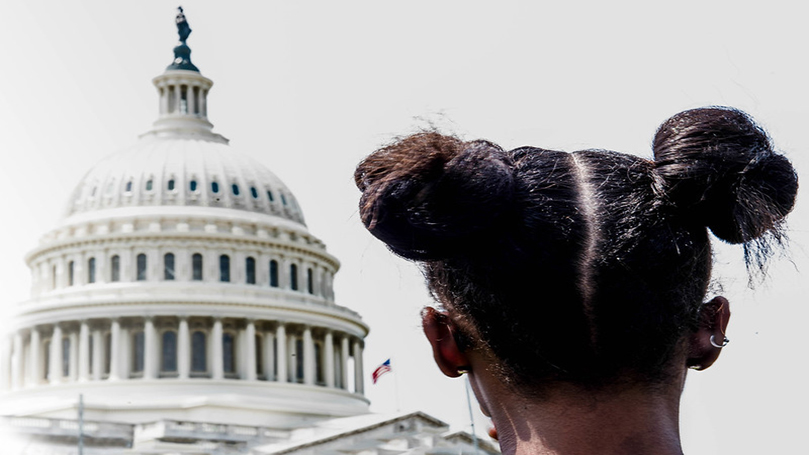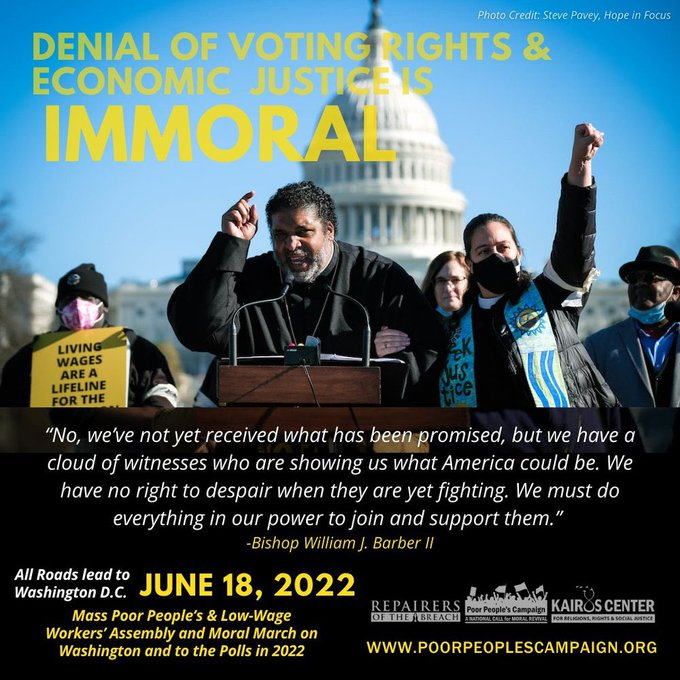
On February 7, the U.S. Supreme Court, in a 5-4 split decision, and with no legal justification, overturned lower court rulings and supported Alabama racists in denying Black voters representation. Gerrymandering was the mechanism used to implement this denial. This decision will impact the 2022 and 2024 elections, diminishing representation of the Black community, the community with the longest, most consistent, history of struggle for democratic participation in this nation, and allied struggle for dignity in the workplace and the penal system in the face of blatant, heinous systemic racism.
As Mark Gruenberg reported in a February 8, 2022, People’s World article, “Almost 27% of Alabamians are Black, and the dissenting justices, as well as the civil rights groups, flatly said the legislature’s remap violates what’s left of the 1965 Voting Rights Act. The groups argued, and lower courts agreed, the VRA means Black Alabamians should have the right to vie for two seats.” After gerrymandering, only one seat is in a largely Black district. Note that four of the five Supreme Court Justices voting in favor of undermining Black representation were white, Clarence Thomas being the exception.
Gruenberg continued: “The majority, in its order, said there was too little time left between now and the state primary for the legislature to draw a new and legal map. Instead, it tossed the court-drawn two-district map and removed a hold on the legislature’s one-district discriminatory map.” This freezes the racist districts in place for the 2022 elections.
Linda Greenhouse reported in the New York Times that this Supreme Court decision is “a conservative voting rights order so at odds with settled precedent and without any sense of the moment that Chief Justice John Roberts feels constrained to dissent.” Justice Roberts is no supporter of voting rights.
Many organizations in Alabama and nationally are engaged in the struggle for voting rights, which must embrace the protection and expansion of the ability of Black people to fully participate in the governance of their communities, to fair and equitable representation nationally and locally, and to participate in the vote.
Among the organizations taking on this struggle are the NAACP, whose website quotes Derrick Johnson saying, “We will continue to meet with senators, we will continue to mobilize, we will continue to apply pressure where necessary. Until democracy is secured for all Americans, the fight will continue.”
The Alabama ACLU and the NAACP Legal Defense Fund are among those struggling on the legal issues.
To achieve a shift in power, electoral struggle must always be linked to mass struggle. Black Votes Matter said, “We are continuing the fight for voting rights. We need action, not words. It’s time for the Senate to do their job, it’s time to protect the vote.”
Rep. Terri A. Sewell (D-AL) said, “Today’s SCOTUS order is yet another blow to the fight for fair Black political representation that is at the heart of the Voting Rights Act. The ruling allows the votes of Black Alabamians to be diluted & further undermines Section 2 of the VRA. This order underscores the urgent need for Congress to enact my bill—the John Lewis Voting Rights Advancement Act—which would restore much-needed federal oversight to ensure that minority voters are fairly represented. Black Alabamians deserve nothing less.”
In Louisiana, Black Voters Matter participated in the statewide Redistricting Takeover Rally, an effort by 20 state and national civil and voters’ rights organizations to raise awareness about the upcoming redistricting process. They went to the state capitol to voice their concerns over that state’s extreme gerrymandering. “When you look at the fact that we make up nearly a third of the population of the state of Louisiana, but have only one United States congressman represented in one Black-majority district, you have to look at how that lack of representation impacts our communities,” said Omari Ho-Sang, State Organizing Manager of BVM. “Our voices deserve to be heard and we deserve to be at this table,” said Ho-Sang.
Reverend William Barber of the Poor People’s Campaign said, “This rising majority of the people have more power than we have yet used, more potential than we have yet tapped & more forms of protest than we have yet deployed.”
While the Supreme Court decision will make the fight harder, there is no doubt of the vast uprising in Alabama and other states around this issue. Leaders like Stacey Abrams are demonstrating the effectiveness of tactics like voter registration in winning change. Voter registration must be coupled with community organization, mobilization on voting day, and encouragement for progressive African Americans, women, and working people to run for office. Just registering people to vote is not enough.
The June 18, 2022, Mass Poor People’s & Low-Wage Workers’ Assembly and Moral March on Washington and to the Polls in 2022 unites many issues related to the lives of Black and working people. Voting rights is a key issue, and mass mobilization is a key dimension of the struggle.

All people concerned with voting rights and the lives of Black and working-class communities must engage now with everything they have to build a turnout greater than any seen before. The working people of the U.S., and especially the Black, indigenous, and migrant people who face super oppression, people in prisons, women, the LGBTQ+ community, all people literally, must choose now how they are going to unite in the struggle for voting rights using every peaceful dimension of protest available.
There is no wrong way to struggle if working people are moved to unite in action to defend their communities and lives, and to strengthen their voice in the street mobilizations, cries of outrage coming from the Black community and allies, and in the voting booth. Our fragile democracy demands nothing less than all-out mobilization.
Please plan to attend and help build the Mass Poor People’s & Low-wage Workers’ Assembly on June 18, 2022.
Please call your senators and register your support for the John Lewis Voting Rights Advancement Act. Information on how to contact your Senators is available here.
This statement was issued by the CPUSA African American Equality Commission.
Image: Leeann Cafferata, Poor People’s Campaign (CC BY 2.0).


 Join Now
Join Now